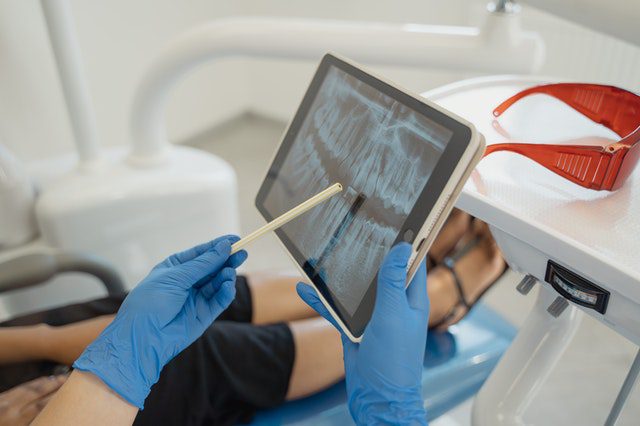Getting wisdom teeth taken out of your mouth is a type of oral surgery that most people have to go through at some point in their lives. Sometimes people get lucky and have them taken out when they’re younger and haven’t popped through the surface of your gums quite yet, while others get them taken out by a dentist who performs oral surgery while they’re in their adult years. No matter what the timing is for the procedure to get your wisdom teeth removed, it can cause a great deal of tension and anxiety for patients.
It’s understandable—after all, going in for any kind of surgery is a big deal. There’s the pre-op checklist you have to follow to a t, the actual procedure itself and having an anesthetic for oral surgery used on you, and then there’s post-op and all the recovery time needed to get you back to working order. However, with the advent of recent technology, minimally invasive mouth surgeries are becoming more and more common. Read on to find out how a minimally invasive procedure can benefit you.
What Does the Process Look Like?
Thanks to modern advancements in technology, dentists and experienced oral surgeons have access to powerful imaging tools that are able to display the exact location of your wisdom teeth, allowing them to make precise incisions with specialized tools that don’t disrupt the surrounding gum area nearly as much.
The imaging also lets the dental surgeon who performs the wisdom teeth extraction see where important surrounding areas are like your nerves and blood vessels in an effort to provide a nearly painless mouth surgery. Once the imaging is done, your surgeon will have a clear view of where everything is, allowing them to make smaller than normal incisions where your wisdom teeth are. They’re then carefully extracted, making sure the roots around the wisdom teeth are fully removed and the areas are cleaned thoroughly.
By using new technology like the advanced imaging and specialized instruments, it also cuts down on the amount of time it takes to have your wisdom teeth taken out, meaning you’re under anesthesia for less time and out the door as quick as possible. All in all, the process is easier than ever before, and it’s made having teeth extracted more accessible for patients who don’t tolerate pain well and feel nervous towards oral surgery procedures.
The Benefits of Using Minimally Invasive Techniques
No surprise here, but oral surgeries that are minimally invasive and keep the operation confined to a small area come with a host of benefits for patients. If you’re wondering how long it’ll take for your wisdom teeth to get removed, the answer is not long at all. Minimally invasive surgeries take less time to perform and wrap things up compared to traditional surgical methods.
If you’ve ever had an intensive procedure done on your mouth before, you’ll know all too well that the trauma to your gums and mouth can cause some serious swelling around the area of operation following the procedure. With minimally invasive procedures, that’s one thing you almost don’t have to worry about. Because the area your wisdom tooth surgeon is operating on is smaller, there’s less trauma, and, in turn, less swelling after the fact.
Post-op also ends up being a breeze too. You’ll find that keeping things as least invasive as possible makes for an oral surgical procedure that doesn’t hurt that bad in the days following the operation. You’ll also be on your way to recovering from the entire procedure in a shorter time window than more conventionally-done operations. Because the incisions are smaller, you’ll end up healing easier and won’t have to spend too long on the mend—you’ll be back to eating your favorite foods in no time.
Plus, these procedures make for incredibly safe wisdom teeth extractions. Due to the operable areas not being disturbed as much, you also don’t run as high of a risk of developing any complications post-operation. Dry sockets are one of the most common complications post-surgery where the blood clot surrounding the wound is dislocated, exposing the bone and nerve in the process. It’s painful. It’s not fun to deal with while the wound continues to heal. And minimally-invasive procedures significantly lessen the chance of something like that occurring.
As dental technology continues to advance, more and more ways of completing oral procedures without disturbing larger areas of the mouth will come into play. If you’re feeling nervous about getting all four wisdom teeth extracted, ask your oral provider about minimally invasive techniques—you might be glad you did.








